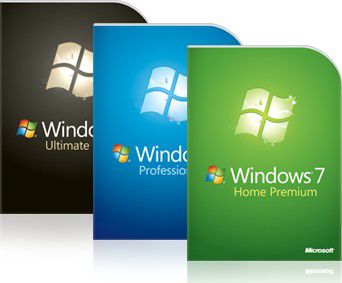From our front-page news:
Oi. It's become no secret that the European Union has had fun slapping Microsoft with pointless lawsuits over the years, but the latest happenings just further proves how asinine their Commission's thought-process is. Take one cranky browser company, Opera, and couple it with the already anti-Microsoft EU, and you have one heck of a story.
In gist, Opera complained to the EU that it's somehow wrong for Microsoft to include only one browser in their OS, and as such, they offered a solution: have Microsoft offer multiple browsers. Yes... they did actually suggest that Microsoft should include competitor offerings within Windows. What's next? Ford offering Toyota flier hand-outs, or an Aion screenshot at the World of Warcraft login screen?
Look... it's simple. Microsoft isn't forcing Internet Explorer on anyone. It's a sub-product of their OS, which people willingly purchase. Nothing stops anyone from downloading another browser of their choice... nothing. If the EU forces this, what's en route? Microsoft being required to offer alternate e-mail clients? Media players? Chat clients? Calculators?
"Rob, chill... what's the big deal?" How about the fact that because due to this pressure, Microsoft will be including no browser at all in the EU version of Windows 7. That means that people will be unable to hop online immediately after installing their OS. Rather, they'd have to install a browser of their choice via alternate means (like a thumb drive), or use the included CD-ROM to install Internet Explorer. Sounds convenient, doesn't it?
Oh, and how about the newly-introduced inability to upgrade from a previous version of Windows? That's right. I'm not sure of the mechanics, but IE is apparently required for a smooth upgrade, and because it's not going to be available in Windows 7 by default for EU users, it simply can't be done. Microsoft could agree to include alternate browsers just to please the EU and Opera, but I don't blame them for their decision. It's their product. If consumers don't like it, they don't have to buy it. It's that simple.
But since it's just a browser, perhaps Microsoft should be a good sport and include a few alternatives. At least that way, the browser-less problem will cease to exist, and customers will be happier. I personally recommend bundling Internet Explorer, Mozilla Firefox and Google Chrome. You guys?

Providing it gets European Commission approval, which looks unlikely based on the Commission's preliminary response, Microsoft will ship the browser-less version of Windows 7, to be known as Windows 7 "E", in all EU member states as well as Croatia and Switzerland. What's more, the browser will also be removed from the Europe-only Windows 7 "N" versions which also have Windows Media Player stripped out - the result of another EU antitrust ruling.
Source: Bit-Tech
In gist, Opera complained to the EU that it's somehow wrong for Microsoft to include only one browser in their OS, and as such, they offered a solution: have Microsoft offer multiple browsers. Yes... they did actually suggest that Microsoft should include competitor offerings within Windows. What's next? Ford offering Toyota flier hand-outs, or an Aion screenshot at the World of Warcraft login screen?
Look... it's simple. Microsoft isn't forcing Internet Explorer on anyone. It's a sub-product of their OS, which people willingly purchase. Nothing stops anyone from downloading another browser of their choice... nothing. If the EU forces this, what's en route? Microsoft being required to offer alternate e-mail clients? Media players? Chat clients? Calculators?
"Rob, chill... what's the big deal?" How about the fact that because due to this pressure, Microsoft will be including no browser at all in the EU version of Windows 7. That means that people will be unable to hop online immediately after installing their OS. Rather, they'd have to install a browser of their choice via alternate means (like a thumb drive), or use the included CD-ROM to install Internet Explorer. Sounds convenient, doesn't it?
Oh, and how about the newly-introduced inability to upgrade from a previous version of Windows? That's right. I'm not sure of the mechanics, but IE is apparently required for a smooth upgrade, and because it's not going to be available in Windows 7 by default for EU users, it simply can't be done. Microsoft could agree to include alternate browsers just to please the EU and Opera, but I don't blame them for their decision. It's their product. If consumers don't like it, they don't have to buy it. It's that simple.
But since it's just a browser, perhaps Microsoft should be a good sport and include a few alternatives. At least that way, the browser-less problem will cease to exist, and customers will be happier. I personally recommend bundling Internet Explorer, Mozilla Firefox and Google Chrome. You guys?

Providing it gets European Commission approval, which looks unlikely based on the Commission's preliminary response, Microsoft will ship the browser-less version of Windows 7, to be known as Windows 7 "E", in all EU member states as well as Croatia and Switzerland. What's more, the browser will also be removed from the Europe-only Windows 7 "N" versions which also have Windows Media Player stripped out - the result of another EU antitrust ruling.
Source: Bit-Tech
